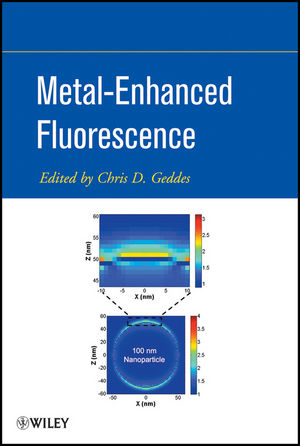Metal-Enhanced FluorescenceISBN: 978-0-470-22838-8
Hardcover
640 pages
June 2010
 |
||||||
This book collects and analyzes all the current trends, opinions, and emerging hot topics in the field of metal-enhanced fluorescence (MEF). Readers learn how this emerging technology enhances the utility of current fluorescence-based approaches. For example, MEF can be used to better detect and track specific molecules that may be present in very low quantities in either clinical samples or biological systems. Author Chris Geddes, a noted pioneer in the field, not only explains the fundamentals of metal-enhanced fluorescence, but also the significance of all the most recent findings and models in the field.
Metal-enhanced fluorescence refers to the use of metal colloids and nanoscale metallic particles in fluorescence systems. It offers researchers the opportunity to modify the basic properties of fluorophores in both near- and far-field fluorescence formats. Benefits of metal-enhanced fluorescence compared to traditional fluorescence include:
-
Increased efficiency of fluorescence emission
-
Increased detection sensitivity
-
Protect against fluorophore photobleaching
-
Applicability to almost any molecule, including both intrinsic and extrinsic chromophores
Following a discussion of the principles and fundamentals, the author examines the process and applications of metal-enhanced fluorescence. Throughout the book, references lead to the primary literature, facilitating in-depth investigations into particular topics.
Guiding readers from the basics to state-of-the-technology applications, this book is recommended for all chemists, physicists, and biomedical engineers working in the field of fluorescence.



